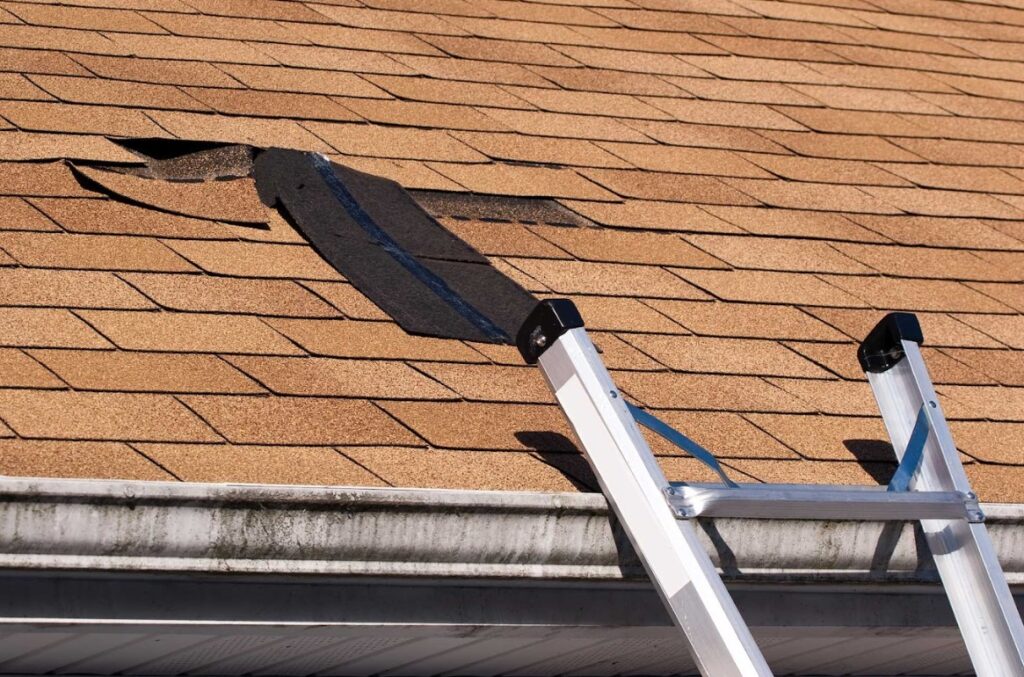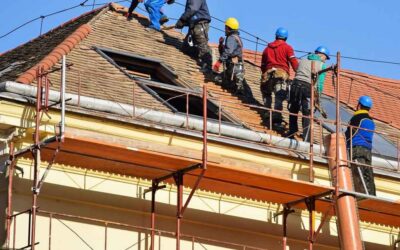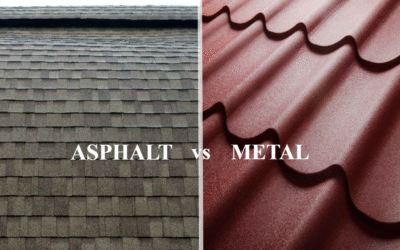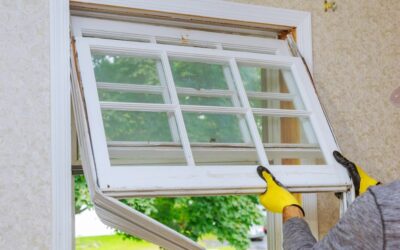A damaged or aging roof can put your home at risk, but how do you know if it’s time for a few repairs or a full replacement? It’s a common question: Should my roof be repaired or replaced? The answer depends on a variety of factors including age, extent of damage, type of roofing material, and cost-effectiveness.
At Keystone Builders, we’ve helped thousands of homeowners evaluate their roofs and make the best decision for their property and budget. This blog will walk you through what to look for, how to compare costs, and when replacement is a smarter investment than repair.
1. Age of the Roof: Is It Near the End of Its Lifespan?
One of the first things to consider when asking, “Should my roof be repaired or replaced?” is the age of the current roof. Every roofing material has a typical lifespan:
- Asphalt shingles: 20–30 years
- Cedar shakes: 30–50 years
- Metal roofing: 40–70 years
- Slate and tile: 50+ years
If your roof is nearing the end of its expected lifespan, replacing it may be more cost-effective than continually repairing it.
2. Frequency and Severity of Repairs
Have you had to repair the roof multiple times in recent years? Frequent leaks, blown-off shingles, or water damage are signs that the roof system is failing.
Signs That Repeated Repairs Aren’t Enough
- Leaks return after each storm
- Large sections of damaged or missing shingles
- Water stains on ceilings in multiple rooms
- Flashing or vent boot failure in several areas
If you’re calling for repairs more than once a year, it’s time to ask: Is it better to replace my roof now instead of spending more on short-term fixes?
3. Storm Damage Assessment
Storms can cause extensive damage in a single event, especially in areas like Minneapolis that see high winds, hail, and heavy snow. Hail can knock granules off asphalt shingles, and strong winds can lift shingles or tear them away completely.
What to Check After a Storm
- Dents or bruises on shingles from hail
- Cracked or lifted shingles
- Exposed underlayment or decking
- Damaged flashing or gutters
If storm damage is isolated, a targeted repair might be enough. But widespread impact often means replacement is the safer option. According to the Federal Emergency Management Agency (FEMA), homes with roofs built to higher resilience standards are less likely to suffer repeat damage in storms [source].

4. Visible Signs of Deterioration
Some roof damage is obvious—others require a closer inspection. If you notice these issues, you might be facing more than minor repairs:
- Curling or cupping shingles: Indicates moisture problems or aging
- Moss or algae growth: Can trap water and speed up deterioration
- Sagging rooflines: A possible sign of structural damage
- Shingle granules in gutters: Sign of deteriorating asphalt shingles
Any of these could mean the integrity of your roof is compromised and replacement is the safer, longer-term solution.
5. Energy Efficiency and Insulation Concerns
Older roofs often lack the ventilation and insulation modern materials provide. If your roof is driving up energy bills or allowing heat and moisture into your attic, replacement may actually lower long-term costs.
Energy Efficiency Benefits of New Roofs
- Improved attic ventilation
- Better heat reflection and insulation
- Lower heating and cooling bills
- Less strain on HVAC systems
The U.S. Department of Energy recommends proper roofing materials and ventilation as critical components of an energy-efficient home [source].
6. Cost Comparison: Repair vs. Replacement
A major deciding factor in whether to repair or replace is cost. Here’s how to compare:
Roof Repair Costs
- Minor repairs: $200–$600
- Moderate repairs: $700–$1,500
- Major repairs: $2,000+
Roof Replacement Costs
- Asphalt shingles (typical home): $8,000–$15,000
- Premium materials: $20,000–$50,000+
When replacement is cheaper over time:
- The roof is more than 20 years old
- Repairs exceed 30–50% of replacement cost
- Roof problems are recurring
A new roof may seem costly up front, but if you’re facing major or repeated repairs, it’s often the smarter financial choice.
7. Impact on Home Value and Insurance
A new roof doesn’t just protect your home—it can increase its resale value and even lower insurance premiums.
Benefits of Roof Replacement for Home Value
- Boosts curb appeal and buyer confidence
- Offers transferable warranties
- Reduces post-sale negotiations over repairs
Many insurance companies may also offer discounts for homes with newer roofs. On the flip side, insurers may deny coverage or increase premiums for homes with older or damaged roofs.
8. Warranty Coverage and Roofing History
Check if your roof is still under warranty. Some roofing materials carry manufacturer warranties up to 50 years. If you’re the second owner, verify whether warranties are transferable. If not, replacement may be a smarter investment for peace of mind and future resale.
You should also review the roofing history:
- When was it last replaced?
- Were previous repairs done professionally?
- Has the roof been inspected recently?
Gaps or unknowns in roof history can make replacement more attractive, especially if you’re planning to stay in the home long-term.
What If I’m Planning to Sell?
If you’re selling your home soon, the roof will be one of the first things an inspector or buyer notices. A damaged or outdated roof can:
- Lower the home’s market value
- Lead to delayed closings or failed inspections
- Result in buyer repair requests or price negotiations
In many cases, replacing the roof before listing can pay off in a faster sale and higher offers.
So, Should My Roof Be Repaired or Replaced?
Ask yourself these questions:
- How old is the roof?
- Is the damage localized or widespread?
- Am I paying for frequent repairs?
- Are my energy bills rising without explanation?
- Am I planning to stay in the home or sell soon?
If the roof is relatively new, structurally sound, and only has minor damage, repairs are usually fine.
If it’s near the end of its life, has widespread issues, or is affecting your home’s energy or value—replacement is the better path.
Let Keystone Help You Make the Right Call
Deciding between roof repair or replacement doesn’t have to be overwhelming. At Keystone Builders, we’ll assess the condition of your roof, provide honest recommendations, and help you make a confident, informed choice.
Don’t wait for more damage to appear. Get a free estimate now and let our experienced team give you peace of mind—and a solid roof over your head.



